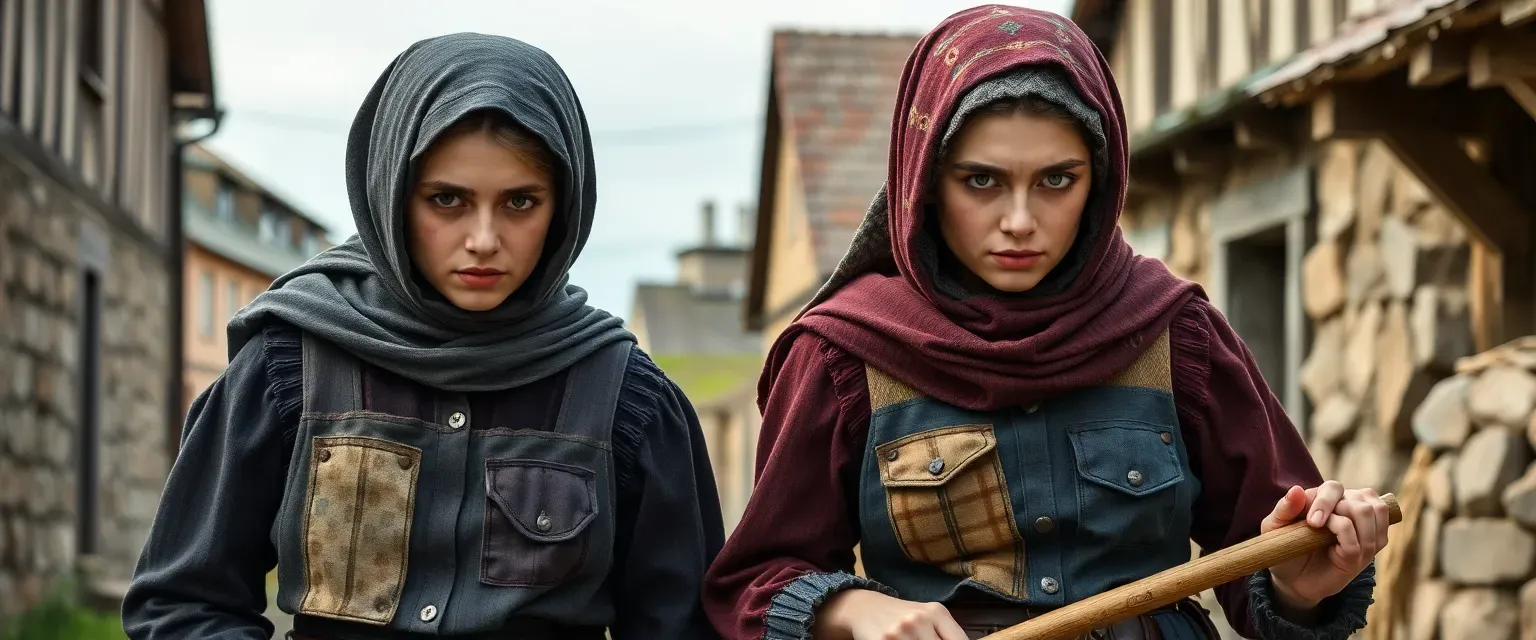In the heart of a small medieval village, nestled within the Slavic pagan culture, dwell the two sisters known as Milena and Zora, the so-called Ugly Sisters. Milena, the elder at twenty-eight, bears a face marred by the pox scars of her youth, and a crooked nose that seems to have been broken and never properly set. Her hair, a dull brown, is often hidden beneath a scarf of patchwork fabric, a testament to her family's meager means. Zora, younger by two years, shares her sister's misfortune in appearance, with a squint in one eye and a mouth that seems perpetually set in a scowl. Both sisters are clad in long, traditional dresses, their hems frayed and patched, a reflection of their lives as cleaning maids, toiling away at the village's streets and homes.
Their voices, high-pitched and grating, carry across the village as they gossip about the lives of others, their words often laced with jealousy and bitterness. The sisters' envy is particularly directed at the village's prettier and more talented girls, those who can sing and dance with grace. Milena and Zora's desire for attention and admiration drives them to align themselves with the village's antagonists, hoping to bring down those who bask in the community's affection. Despite their harsh demeanor, the sisters are diligent in their work, sweeping the cobblestone streets and carrying baskets of goods, all the while complaining about their lot in life.
Milena's unique quirk is her habit of humming a dissonant tune whenever she's particularly agitated, a sound that seems to unsettle those around her. Zora, on the other hand, has a peculiar way of tilting her head to the side when she speaks, as if trying to see the world from a different angle, though it only adds to her unsettling presence.
The sisters' lives are a constant battle against their perceived injustices, their jealousy fueling their actions as they seek to undermine the heroes of the village. Their intelligence is cunning, used to devise petty schemes to disrupt the peace and gain a semblance of control. Yet, their efforts often lead them further into isolation, as the villagers grow weary of their antics. In the end, Milena and Zora remain entrenched in their roles as the village's outcasts, their bitterness a self-fulfilling prophecy that keeps them from the acceptance they so desperately crave.
